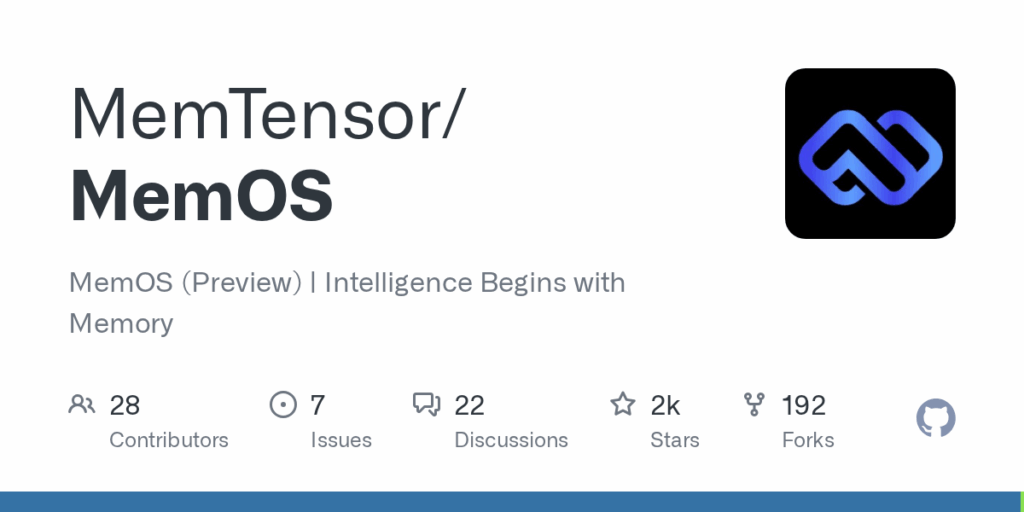MemOS
Basic Information
MemOS is an open source operating system for Large Language Models designed to add long-term memory capabilities so models can store, retrieve, and manage information across interactions. It provides a unified Memory-Augmented Generation (MAG) API and a higher-level orchestration layer called MOS to manage multiple MemCubes and user memory state. The project targets developers and researchers who want to integrate persistent, modular memory into chat and reasoning workflows, enabling more context-aware, consistent, and personalized LLM behavior. The README documents end-to-end evaluation on the LOCOMO benchmark and shows substantial gains over baseline memory solutions, highlights versioned releases and community resources, and includes installation instructions, optional feature groups, example data and code, and API references for integrating with LLMs and memory backends.








